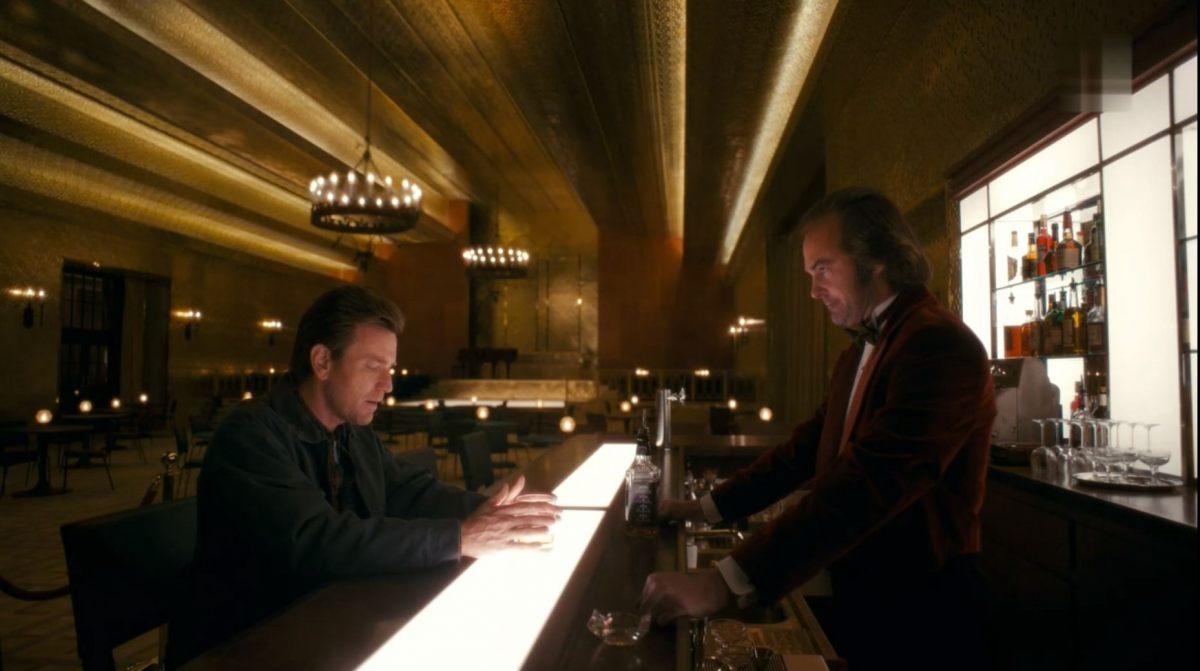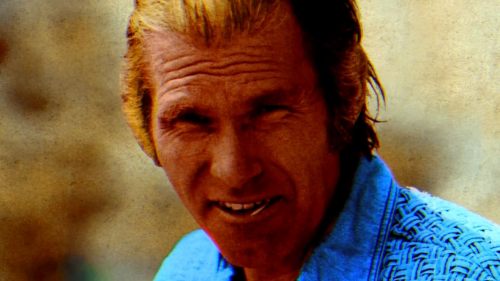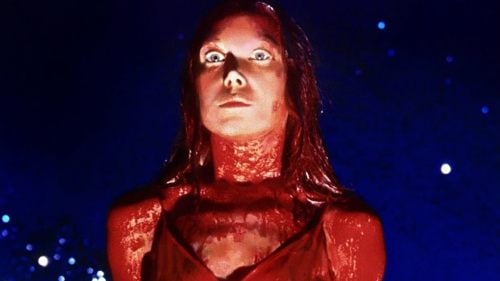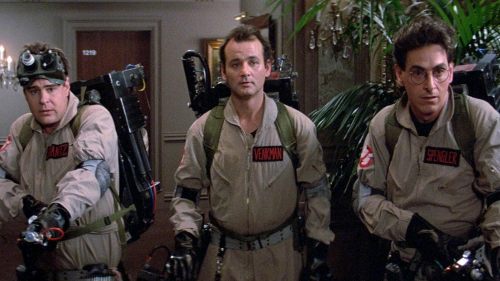Collins’ Crypt: The Director’s Cut Of DOCTOR SLEEP Should Be The *Only* Cut
My memory keeps getting worse, but I vividly remember sitting in a theater last November for a Thursday night advance showing of Doctor Sleep and thinking, sadly, "something isn't RIGHT here" as the movie reached its big third act, where Danny Torrance returns to the Overlook Hotel. So far, there wasn't anything I disliked in the roughly two hours of movie I had just watched, but it still felt like it was getting its pieces in place, which is a weird situation for a movie to find itself in when it's almost over. As a massive fan of Mike Flanagan's, I couldn't help but feel that there was something off with the movie's pace and rhythm compared to his other films (not to mention Haunting of Hill House, perhaps his greatest achievement), ultimately assuming that he simply wasn't able to overcome the novel's shortcomings, though since I hadn't read it I couldn't be sure - I was just going off the largely muted response to King's book from my friends.
But as it turns out, I was right about the movie's rhythm being off, as there is a new cut of the film on Blu-ray and VOD that runs about 28 minutes longer, which is nothing to shrug off - it's in the same ballpark as The Abyss and The Fellowship of the Ring if you're going by minutes added, and it's almost universally agreed that those are the superior versions of those films. And since it's only been on the shelf for a few weeks it is perhaps too early to etch in stone, but if you ask me, the new cut of Doctor Sleep belongs in that same pantheon, to the extent that the theatrical cut is no longer necessary. Other than simply complaining about the length ("Three hours is too long for a movie!" has probably been uttered by more than one person who has binged several Netflix seasons day of release), there isn't any possible way anyone could argue that the director's cut "ruins" this or that thing about the narrative the way folks do about the Hadley's Hope sequence in Aliens or all of the (unnecessary) explanations in Donnie Darko.
Because sure enough, this isn't the kind of director's cut where they add a few sequences that were removed for whatever reason; there are a few, of course, but the majority of the added runtime is due to scenes being extended in one way or another. Sometimes it's just a few lines sprinkled throughout, sometimes it's an extra button at the end of a scene, and sometimes it's merely letting the performances "breathe" a little more during key scenes, like a few brief pauses from Dan Torrance (Ewan McGregor) when he's giving his speech at the AA meeting that makes it more natural (and, in turn, heartbreaking). As a result, that "off" feeling went away - even though it was longer (and, obviously, I knew where the story was going) this viewing actually felt faster, as it went through its proceedings more comfortably, forming a cohesive whole that I thought the movie lacked when I saw it in theaters. Like Flanagan's underrated Before I Wake, Doctor Sleep isn't a traditional horror movie, but a drama that relies on horror (and light fantasy) elements to tell its tale, and with these added "breaths", the dramatic elements feel more thorough, making the theatrical cut feel like an airline or television edit in retrospect.

(SPOILERS FOR ALL VERSIONS AHEAD!)
This cut wastes no time establishing itself as different, as nearly every scene in the first act has some change (what was once the 20 minute mark of the film is now the 30 minute mark, to give you a rough idea of how much this section has been expanded). Some are more noticeable than others, such as the extended beat after the True Knot murders the girl by the lake in the film's opening sequence (in the theatrical cut the scene ends after they approach the girl; Flanagan's cut shows her mother wandering around looking for her as we see the Knot's caravan driving away in the background - very chilling), while other scenes just get an extra line or moment that helps clarify or establish certain things that were vague in the theatrical cut. And if you're a fan of Alex Essoe as Wendy (far and away the most impressive of the four key replacement actors from Stanley Kubrick's film), you'll be happy to know there's more of her here too, including something of a subplot about how she had trouble looking at Danny because he had his father's eyes, which prompted him to use his powers to change them from brown to blue so she could look at him again (a story thread that makes her final appearance in the film's climax far more moving).
But it's not all at the top; throughout the film we get more full on scenes and notable changes that go beyond a line or two and really help clarify the storytelling and the characters' motivations. One thing in particular I appreciated was a quick scene showing Dan placing a few crumpled bills on the counter at the train station and asking how far it can get him - cinematic shorthand for "this is all the money this guy has." In the theatrical cut, they skip this bit and just show him on the bus arriving in New Hampshire, so it's not clear that he wasn't going to that particular town for any specific purpose. Likewise, Cliff Curtis' Billy takes him under his wing almost instantly, and says something like "I get this feeling about people," which in the theatrical cut feels like the script is suggesting he too has "the shine", only to drop the idea. However, in Flanagan's preferred cut, we later learn Billy has an addict brother who he keeps trying to help, only for it to not take, making it clear that he sees Danny as a chance to redeem himself over a perceived failure of his brother.
The most obvious addition - partly due to its eye-catching, somewhat iconic setting - is another scene between Dan and Jack (Henry Thomas) that immediately follows their Gold Room encounter in the film's third act. In the theatrical cut, Jack spills the drink and then Abra contacts Dan to let him know that Rose has arrived, but here that alert is delayed, giving the two men time to go to the bathroom so that Jack can help Dan clean the spilled liquid from his clothes. In addition to McGregor getting a quick beat of Nicholson mimicry (like his father, he seems somewhat puzzled/amused by the garish bathroom design), it allows Jack's surprise appearance to actually serve a second purpose, as he encourages Dan to invite Abra into the hotel and let its residents take care of the rest. The inclusion of the elder Torrance (and the necessity of recasting Jack Nicholson) was probably the biggest gamble on Flanagan's part (the book features Jack, but in more of a helpful context), and I must admit I found it distracting before, but with the extra time afforded to Thomas' performance I "get" it now. In fact now I think it works rather well for the most part, as it's quite clear he's not just the ghost of Dan's dad, but that he's a full blown "Overlook Ghost" as well.

That said, this material is what makes me most interested in finally reading the book, since it was invented for the film but in this director's cut form feels like a completely natural plot point to have in the (otherwise quite similar) source material. As most of us know by now, Flanagan had the unenviable position of trying to make a proper Doctor Sleep adaptation that King (and his vocal fans) would approve of, but also make a sequel to Kubrick's The Shining, a film that made vast changes from its own source material, something that famously outraged the author. Some of the changes were easy enough to work with; Kubrick's decision to kill Dick Halloran off might have been an issue if this was a sequel to, I dunno, Shawshank Redemption, but since this is a ghost-friendly franchise, Flanagan was able to include Halloran's scenes from the sequel novel (where the character was still very much alive) and simply have him disappear at the end of a scene instead of getting into a car to make his exit. Others were a little trickier, such as the state of the Overlook - burned to the ground in King's novel and not rebuilt for his sequel, but left standing in Kubrick's film, giving Flanagan an excuse to have it return and hope no one thought too hard about the curious fact that it hasn't been touched in forty years.
Watching it again reminded me of how misleading the marketing was for the film, as it focused heavily on this material that, if you think about it, they wouldn't have even HAD if Flanagan ignored Kubrick's changes and made a straight adaptation of the followup novel. This stuff only appeared in the final 30 minutes or so of the movie, and it really is - for lack of a better word - a spoiler to showcase it, to the extent that the trailers made it look like that was pretty much what the story was about. If I was in charge of advertising over at WB, I'd have a trailer that didn't mention Shining or King at all at first, pitching a story about a group of evil people (Rose the Hat and her followers) had their sights set on a special girl (Abra), and when things got too hairy for her she called for help, with only one man answering the call... Danny Torrance from The Shining! BOOM, done. Put up the title and the release date and get people (particularly my fellow non-readers) hooked with this surprise reveal and wonder how it all played out. The trailer basically sold a straight up "Shining 2", giving us those answers without the context for why they were happening, at the expense of even really introducing us to Abra, the character most of the movie revolves around. I suspect a clearer, more honest trailer would have helped the movie's box office, even in its truncated form.
Ironically, another thing the director's cut added are six chapter headings that almost suggest a serialized television adaptation, fitting since it seems the movie will find the bulk of its (deserved) audience on Netflix or HBO. Hopefully that is the cut these services go with if they can only offer one for whatever reason; again, the theatrical cut is simply useless at this point and home audiences will certainly have the time to watch it all if the runtime was too daunting for a theatrical excursion (with trailers, the theatrical cut demanded three hours of your time anyway, now that I think about it), and if not then the chapter marks will provide natural stopping points to pick it up the next night. As horror fans, we are inundated with "extended cuts" all the time, sometimes with some restored MPAA trimmings, other times it's just padding no one wanted in the movie anyway (but will encourage rentals/purchases as we assume it's, well, restored MPAA trimmings), but it's been a long time since we got one that drastically improved the film's overall quality. Whether you were mixed on the theatrical cut or simply skipped it, I hope you can trust me when I say that this is no marketing gimmick, and what was once a good, but somewhat flawed King movie I might never find the time to watch again has become an essential entry in his ever expanding filmography.



